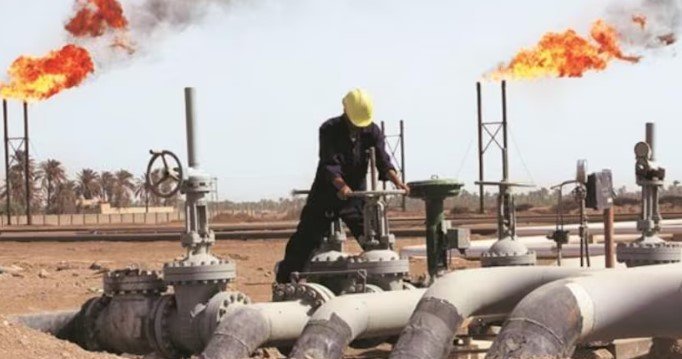Global markets have been shaken as Asia’s stock markets experienced a significant downturn, driven by escalating tensions in the Middle East. This geopolitical instability has caused oil prices to surge, affecting economies worldwide and contributing to uncertainty among investors.
Contents
- 1 Rising Middle East Tensions Fuel Oil Price Spike
- 1.1 Related posts
- 1.2 Bail Bonds 101: A Step-by-Step Guide for Families and Defendants
- 1.3 New Polls Show Ghana’s Opposition Leader Poised for Victory in Upcoming Presidential Election
- 1.4 England’s Earps Breaks New Ground as the First Female Footballer Honored at Madame Tussauds
- 1.5 Referee David Coote Suspended by PGMOL Following Alleged Verbal Abuse of Liverpool and Klopp in Video
- 1.6 UK’s Starmer Set to Meet Macron in France to Strengthen Ukraine Support Following Trump Victory
- 1.7 Biden Extends Congratulations to Trump, Extends White House Invitation
- 1.8 Trump’s return to power fueled by Hispanic, working-class voter support
- 2 Economic Implications for Asia’s Major Markets
- 3 Outlook: What’s Next for Asia and the Global Economy?
Rising Middle East Tensions Fuel Oil Price Spike
The recent uptick in Middle East tensions has triggered a notable increase in oil price. With the region playing a pivotal role in global oil supply, any disruption has immediate ramifications for energy markets. As prices climb, the cost of production for businesses rises, which can lead to inflationary pressures across various industries.
Economic Implications for Asia’s Major Markets
For economies heavily reliant on imported oil, like Japan, South Korea, and India, the impact of rising oil price can be particularly severe. Higher energy costs can strain business operations and consumer spending, ultimately leading to slower economic growth. Central banks in the region are also faced with the challenge of balancing inflationary pressures with the need to support economic recovery, especially as they navigate post-pandemic conditions.
Outlook: What’s Next for Asia and the Global Economy?
As the Middle East situation evolves, markets will likely remain sensitive to developments, particularly regarding oil supply security. Analysts suggest that if tensions continue to escalate, oil price could climb even higher, potentially leading to further market disruptions. For Asia, maintaining economic stability amid these challenges will require careful navigation by policymakers and central banks to manage inflationary pressures and support economic growth.
Read more also:- Ghana Confirms Initial Mpox Case, Awaiting Analysis on Variant Strain


















